Personal Loans Articles
Learn about how getting a loan online works and how to find
the best one for your specific financial needs.
This site is a free online resource that strives to offer helpful content and comparison features to our visitors. We accept advertising compensation from companies that appear on the site, which may impact the location and order in which brands (and/or their products) are presented, and may also impact the score that is assigned to it. Company listings on this page DO NOT imply endorsement. We do not feature all providers on the market. Except as expressly set forth in our Terms of Use, all representations and warranties regarding the information presented on this page are disclaimed. The information, including pricing, which appears on this site is subject to change at any time.

How to Find the Right Loan for You Based on Your Credit Score
Many people seek out personal loans without really understanding the mechanics behind the process. Getting accepted by a lender for a personal loan is determined by several factors, some of which you may not have control over.
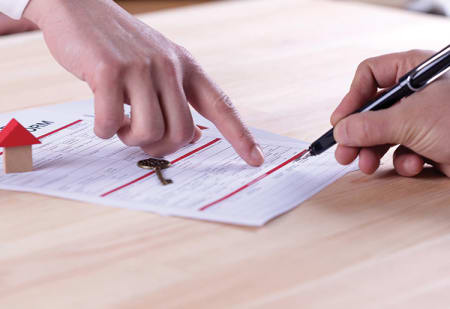
Secured vs. Unsecured Loans in a Nutshell
If you need some extra funds, one of the most important things to know is the best type of personal loan for your needs. When it comes to personal loans, there are 2 major categories that you will come across: secured loans and unsecured loans.

Compare Different Secured Personal Loans of 2026
A secured personal loan is called that because the loan is secured by some form of collateral. Unsecured personal loans rely on your personal credit score, financial history, and debt load to determine whether you can be eligible for a loan or not.

The Dos and Don’ts of Taking Out a Personal Loan
Taking out a personal loan can be a smart and highly-effective way to consolidate your debt, which is the most common reason to take out such a loan, or you can also use one to get the funds necessary to pay for a sudden expense. You might need to deal with an emergency, pay for a large household expense, or just cover a temporary personal cash-flow issue.

Cover Your Medical Expenses with These Personal Loan Providers
High medical costs can add insult to injury when you're recovering from a medical emergency. Even people who have medical insurance can find themselves struggling with high copays, an insurance company that refuses to pay up, or simply face a long delay until insurance payments are approved.

How to Find the Right Loan For You
Now that you’ve decided to take out a loan, how do you decide which type is the right personal loan for you? The first question to ask yourself is, “What is this loan for?” Is it for a small business or personal use? Is it to pay for a big expense, like a wedding or a car, or to cover personal expenditures? Is it to help you buy a home? The loan’s purpose will impact which type of loan is right.

How Long Does It Take to Get a Personal Loan?
Getting a personal loan can happen quickly.

Pros and Cons of Personal Loans: What to Know Before You Borrow
Personal loans offer a straightforward way to borrow money for all kinds of reasons.

How Much of a Personal Loan Can I Get?
Personal loans typically range from $1,000 to $100,000, but the amount you can actually get depends on your financial situation.
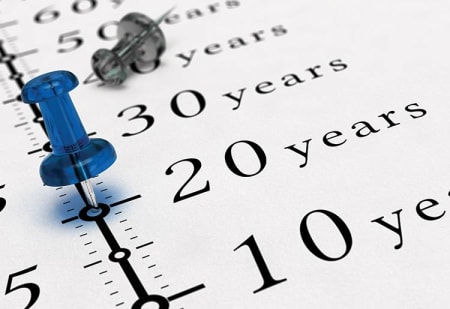
Compare 5 Long-Term Personal Loan Lenders
A long-term personal loan is essentially any loan with a repayment period longer than around 3 years. Long-term personal loans usually offer higher loan amounts, lower interest rates, and are frequently secured to some item of collateral, such as your home or your car. Unsecured long-term personal loans will not have lower rates or higher loan amounts because the risk to the lender is still high.

Personal Loans: What You Need to Know Before Borrowing
Personal loans offer quick access to funds with fixed interest rates, predictable monthly payments, and flexible use for debt consolidation, home improvements, or major expenses.

Secured Personal Loans: What They Are and How They Work
Secured personal loans require collateral but offer easier approval and lower rates than unsecured loans. You risk losing your collateral if you default. Best for borrowers with poor credit seeking competitive rates.

How to Avoid Personal Loan Scams
Personal loans can provide money for many purposes, from debt consolidation and paying off bills to major home renovations or emergency expenses.

What Documents Do You Need to Apply for a Personal Loan?
When you apply for a personal loan, the lender will ask you for several documents to confirm your identity and collect information about your finances.

Personal Loans vs Credit Cards: Which Should You Choose?
Maintaining financial security isn’t just a matter of making all your expenses every month, it also means clearing enough to put some away for a rainy day or for major purchases down the road.

How to Pay Off a Personal Loan Faster: 8 Proven Strategies
Every extra dollar you pay toward your personal loan principal saves money on future interest and shortens your debt timeline.

What to Do if You Can't Make Your Personal Loan Payment
Facing a payment you can't afford is terrifying, but the worst thing you can do is nothing.

Top Reasons to Get a Personal Loan: When and Why It Makes Sense
But with so many financial products available, how do you know if a personal loan is right for you? In this guide, we’ll discuss why people choose personal loans and provide insights into when taking one out can be beneficial—and when you should consider an alternative.

Is a Vacation Loan a Smart Way to Finance Your 2026 Getaway?
Vacation loans promise immediate access to experiences you'll remember forever, but what lenders don't emphasize is that your payments continue long after your tan fades.

HELOC vs. Personal Loan: Which Is Right for Your Home Improvement Project?
Homeowners often think the biggest decision is choosing the right contractor or design. But before the first tile is laid, the real foundation is financial.

Do You Have to Pay Taxes on Personal Loans?
Personal loans typically don't create tax complications since they're borrowed money that must be repaid.

Secured or Unsecured Personal Loans: Which is Right for You?
Comparing secured vs. unsecured personal loans can help you find the best fit for your financial goals. Secured loans offer lower interest rates and easier approval but require collateral, while unsecured loans fund faster and protect your assets. Learn which type of personal loan is right for your credit, budget, and borrowing needs.

What Is an Installment Loan and How Does It Work?
Installment loans are one of the most common types of borrowing, and for good reason.

Compare Recommended Personal Loan Providers for Students
If, like most undergrads, you’re defined as a “dependent student,” you’re entitled to borrow up to $5,500 in federal student loans (also known as Stafford Loans) in your freshman year, $6,500 in your sophomore year, and $7,500 in both your junior and senior years.

The Dos and Don'ts for Borrowing Money During a Crisis - Professionals Weigh In
This new reality that we’re experiencing is changing everything, including the way we borrow money. We asked leading finance professionals to present the good and the bad options for American households and businesses seeking a loan.

A Guide to Finding a Personal Loan with a Cosigner
If you have less than ideal credit or no collateral to put down, it can be difficult to get a personal loan with a low interest rate. This is where cosigning a loan can really help. With a low credit score (620 or lower), you stand to face some real reluctance, if not just flat out rejection, with many lending houses. Even if you are approved you stand to pay a high interest rate of 15% or higher.

What to Look For When Applying for a Personal Loan
Taking out a personal loan can be a wise decision if you’re looking to consolidate debt or make a purchase that you simply don’t have the funds to make at the moment.

Personal Loans for Bankrupts: How to Get Back on Your Feet
Declaring bankruptcy used to carry stigma, but today declaring bankruptcy is mainly seen as a necessary step taken to repair financial well-being. While it does afford you a fresh start, it also brings new issues to contend with.

Looking for a Pool Loan? Compare These Lenders
If you love the idea of adding a pool to your home but don’t have the financial means to do so, a personal loan can be a good option for making your dream come true.

6 Steps Towards Getting a Competitive Personal Loan with Low Rates
What do you do when extra expenses come knocking and you just don’t have the money? You can borrow against your house or car, but then there’s a risk of losing your collateral. If you get an unsecured personal loan that risk is eliminated - but because it’s a riskier loan for the lender than a secured loan, you end up with higher interest rates and fees.
%20(1).20190611113825.20190723131343.jpg)
SoFi vs. Marcus: Which Personal Loans Company is Right for You?
The choice of reliable, reputable online loan companies that offer good rates, high-level customer service, and fast turnaround times for personal loans is greater than ever. We put SoFi and Marcus head to head to evaluate their application process, loan terms, eligibility requirements, fees, security, and customer service so that online borrowers can choose which one is right for them.

Personal Loans: Are They Always a Good Idea?
If you’re in need of a large sum of money to pay off credit-card debt or fund a large purchase, a personal loan can be a tempting option.

The Millennial's Guide to Being a Grown Up With Money
Millennials have more positive opportunities than Baby Boomers and Gen Xers did. Millennials have a wealth of internet knowledge at their fingertips and more flexibility and benefits than previous generations.

Compare Loan Companies for Every Loan Type
There are many types of personal loans, sometimes also referred to as signature loans, available from online lenders. Although most loan providers offer more than one loan type, each usually has one area in which it specializes.
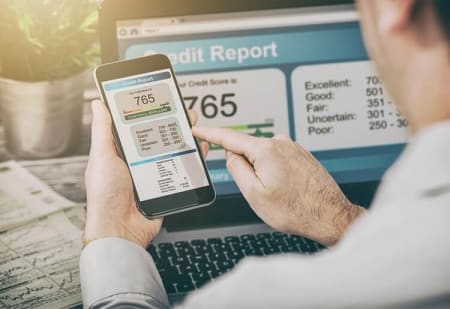
Do You Have Good Credit? Check Out These Personal Loan Companies
When you apply for a personal loan, one of the factors that stands above all others in determining your rate is your credit score. The higher your credit score, the lower the rate. Generally speaking, a good credit score should be enough to qualify for an interest rate below the national average of 10.1%. An excellent credit score is needed to qualify for the lowest APRs of 5%-7%.

Do Personal Loans Hurt Credit Scores?
Keeping your credit score up is incredibly important for your personal finances. A strong credit score gives you access to more options when you need credit and access to lower interest rates on any money you do borrow. Your credit score may also be taken into account when you’re looking for housing or even when you apply for jobs.

Personal Loans to Become Cheaper as Fed Cuts Interest Rates
Personal loans are the fastest growing form of consumer credit in the United States and they’re about to become even more popular.

Personal Loans 101
From peer-to-peer lenders and micro loan websites to major brick and mortar banks, there are plenty of avenues for you to find your personal loan.

Direct Lenders vs. Lending Marketplaces: What’s the Difference and Which is Right for You?
Direct lenders provide personal loans and other lending products directly to consumers. The big banks used to dominate the direct lending space, but online lenders have grabbed a significant portion of the market share in recent years. Online lending marketplaces leverage powerful algorithms to match consumers with the direct lenders that meet their needs.

Compare These 5 Personal Loan Providers If You Have Bad Credit
Getting a personal loan with bad credit can be tough, but thanks to a few specialist lenders it’s a lot easier than you may think. When a lender assesses a personal loan application, they usually start with the applicant’s credit score. If the applicant has bad credit, this tells the lender there’s a high risk of them not repaying the loan in full.

Find the Right Home Improvement Loan for You
If you’re looking to make renovations but don’t yet have the cash flow, a home improvement loan is a solid way to get the funds you need, with terms that won’t hurt your wallet.

SoFi Community: This Loan Provider Wants to Take You Out For Drinks
How would you like it if your loan provider invited you out for drinks? Maybe yoga is more your speed? That's no problem. If you're working with SoFi, you can find any number of events that may appeal to you. But, since when do money-lenders get involved in the private lives of their customers? When your name is Social Finance, it shouldn’t come as a big surprise.

SoFi-Wealth: The Wealth Management Platform for the Average Joe
In its latest move towards educating and empowering its customers, leading personal loan provider SoFi has introduced SoFi Wealth, a native wealth management platform. But, what is SoFi Wealth all about, how does it work, and what makes it different than the rest?

This 7-Step Guide Will Ensure You Choose a Personal Loan Provider You Can Trust
Getting a personal loan can be a long and complex process. Ideally, your personal loan will help you to make the purchases you need or cope with emergencies and not be a source of debt and anxiety.

How Long Does it Really Take to Get Approved for a Personal Loan?
If you’re waiting for approval for a personal loan, you’re likely eager to find out that you’ll be approved. Although it feels like it takes a long time, when you think about what needs to be done, approval for a personal loan actually happens relatively fast.

5 Facts About Personal Loans You Need to Know
More Americans are using personal loans in 2018 than at any other time in history, thanks largely to the rise of online lenders. To understand why, take a look at how online lending is re-shaping the personal loans market and the other trends that are helping borrowers to save on personal loan rates – and to favor personal loans over other lending products.

Should You Use a Personal Loan to Help Pay Off Your Student Debt?
So, you have student debt? You’re not alone, according to the latest Federal Reserve data, which shows that Americans owe more than $1.5 trillion on student loans. Among the Class of ’16, average debt at graduation topped $30,000 in 17 states, according to the Institute for College and Success’s 12th Annual Student Debt Report.
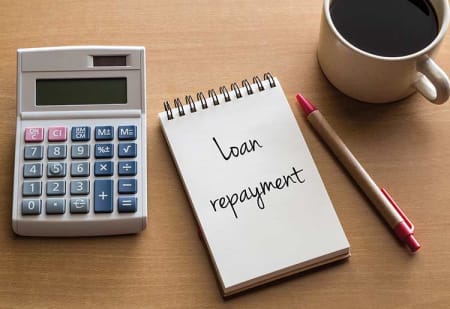
The Smart Way to Repay Your Loan
The best strategy for paying off a personal loan can be summed up in one word: preparation. No 2 borrowers are equal, and a loan perfectly suited to one person could easily be a cause of stress for another. That’s why it’s crucial to be prepared. Before taking out a personal loan, it’s important to figure out what you need the money for, how much you need, and how you plan to pay it back.

Paying Off a Loan Early: Should You or Shouldn’t You?
A personal loan is typically a small loan ranging from several hundred dollars to as much as $100,000. These are more likely to be unsecured loans. That is, the borrower wasn’t required to put down any collateral, but typically pays a higher interest rate to compensate for the risk the lender is taking.
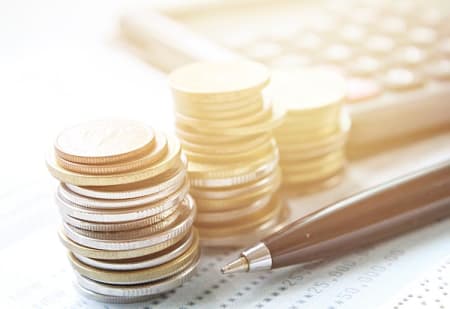
No Credit Check Loans: Reasons to Avoid Them and the Alternatives Available
When you need instant cash, it might be tempting to take whatever loan you can—including a no credit check loan. But before taking this or any other type of loan, you should understand the loan you’re getting, and how it might affect your financial future.